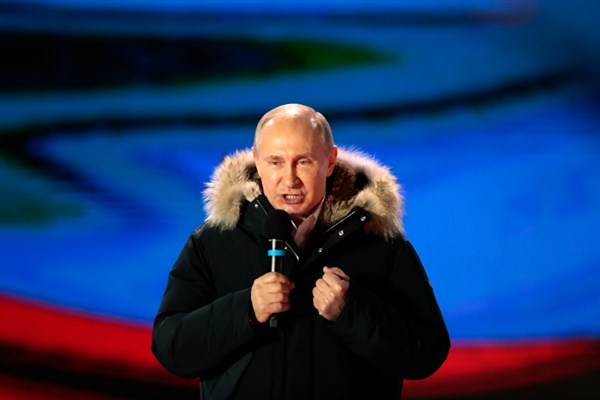When Vladimir Putin won a landslide victory to a fourth term as Russia’s president on Sunday, it came as a surprise to no one. Still, his re-election was noteworthy for many reasons, including how apparent it is that as democracy loses ground around the world, Putin embodies the model for the 21st-century descent into authoritarianism—a model that is being emulated by other aspiring autocrats.
That Putin’s re-election has repercussions far beyond Russia was evident in the headlines that dominated the news in the days leading up to the vote. A former Russian spy and his daughter were found slumped on a bench in the normally quiet city of Salisbury in southern England. British doctors, scientists and military experts concluded that Sergei Skripal and his daughter, Yulia, had been victims of a chemical attack in which the would-be assassins used a powerful nerve agent developed by the Soviet Union. Almost immediately, amid word that dozens of people were sickened in the operation, tensions between Moscow and London escalated to levels reminiscent of the Cold War, with the U.K. supported by its allies.
As the fallout from the Skripal case intensified, American officials revealed that Russian hackers were engaged in an ongoing operation to attack critical infrastructure in the United States, targeting the energy grid, nuclear power plants and airports.

